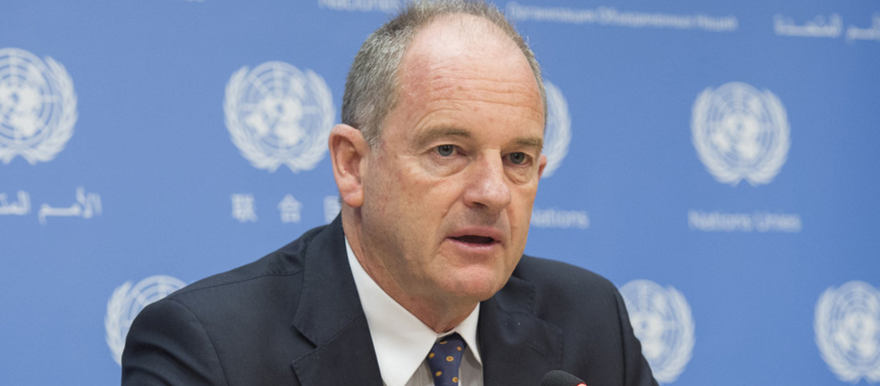Parties to the peace agreement must accelerate efforts to graduate unified forces, form state and county institutions, reconstitute the national legislature and finalize the constitution so that elections can take place, says the UN’s top envoy in South Sudan.
In a speech delivered to the Reconstituted Joint Monitoring and Evaluation Commission (RJMEC) plenary in Juba, the Special Representative of the Secretary-General, David Shearer, acknowledged the positive progress made by political parties in the past year.
He particularly highlighted the formation of the transitional government, presidency, and Council of Ministers as well as the recent appointment of the Upper Nile State Governor but said the pace of implementing the 2018 peace deal has been too slow.
“That has heightened doubt and frustration. It has also opened opportunities for spoilers to exploit local tensions,” David Shearer said. “Our fear is that the slow pace of reform as set out in the Peace Agreement will deteriorate further as national actors meddle and fuel local-level violence.”
He pointed to an increase in subnational violence over the past two months in places like Maban, Warrap, Tonj, and Jonglei which was causing huge harm to local communities.
David Shearer congratulated the Government for hosting a conference to address the root causes of the conflict in Jonglei.
“The UN is following up with peace initiatives bringing local youth and church leaders together and had redeployed peacekeepers from former POC sites to hotspots to help prevent conflict before it erupts,” he said.
The SRSG also welcomed this week’s announcement that the Government would accelerate the implementation of key outstanding aspects of the peace deal, including the graduation and deployment of unified forces.
However, he said, “action now needs to follow these good intentions because thousands of troops are festering in cantonment sites without adequate shelter, health care, food and water waiting for agreement.”
The SRSG pledged the UN’s full support for efforts to breathe new life into the peace process.
“We are already looking at prioritizing technical support for Security Sector Reform and have increased engagement with the South Sudan National Police Service to build its capacity to prevent and respond to crime,” he said. “A more professional police force and associated support for the broader justice system will be hugely beneficial in reducing crime and ending impunity, particularly for perpetrators of sexual crimes.”
The SRSG said accelerating the implementation of the peace agreement would encourage displaced people to return home, enable South Sudanese to pursue livelihood opportunities, and lay the foundation for free and fair elections.




